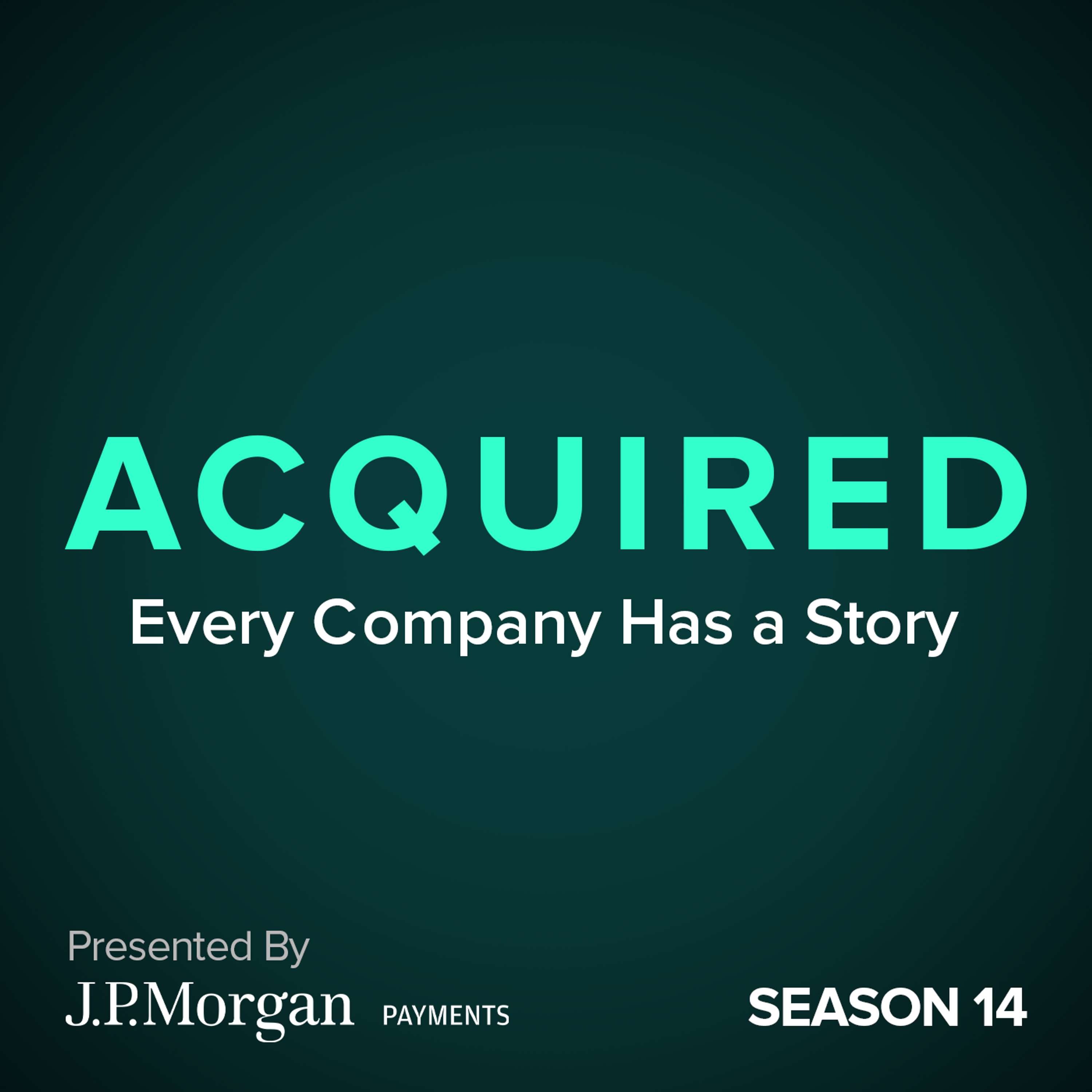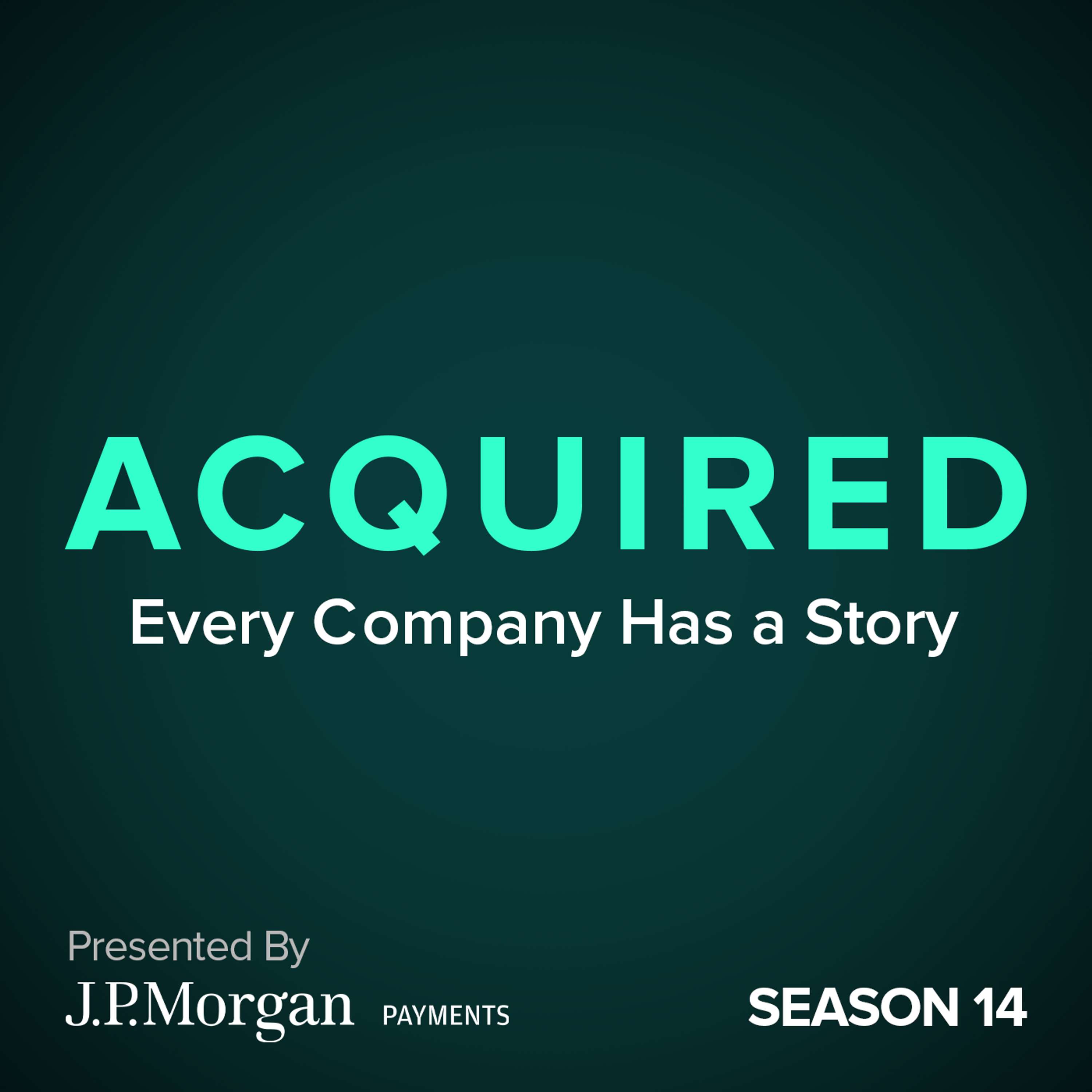
August 21, 2023 • 3hr 1min
Costco
Acquired

Key Takeaways
- Costco has an incredibly disciplined business model that prioritizes providing extreme value to customers over maximizing profits, leading to a loyal customer base and defensible competitive position
- Costco's focus on low overhead, high inventory turnover, and treating employees and suppliers well creates a virtuous cycle that is difficult for competitors to replicate
- Costco's culture of frugality, promotion from within, and long-term thinking has been maintained through multiple CEOs over decades
- Costco has significant room for global expansion, especially in China, and is taking a measured approach to e-commerce that leverages its strengths
- Costco's business model and culture give it a durable competitive advantage and make it a compelling long-term investment, despite its modest profit margins
Introduction
This episode of Acquired dives deep into the history, business model, and culture of Costco, a company that has become one of the most successful and admired retailers in the world. Costco's origins trace back to the pioneering work of retail legend Saul Price and his company Fedmart, which laid the foundations for Costco's unique approach. The hosts, Ben Gilbert and David Rosenthal, explore how Costco has managed to achieve incredible scale and profitability while bucking many industry norms, making it a true outlier in the retail landscape.
Topics Discussed
Saul Price and the Origins of Fedmart (8:01)
Saul Price was a pioneering retailer who founded Fedmart, one of the first discount retail chains in the United States. Fedmart was innovative in several ways:
- It operated as a membership-based club, allowing it to offer lower prices by avoiding minimum resale price laws
- It paid employees well above industry norms and provided good benefits, leading to low turnover and shrinkage
- It focused on centralized warehousing and logistics, rather than individual store operations
While Fedmart was successful, Saul Price struggled with the capital-intensive nature of expansion and eventually sold the company. This led to the creation of Price Club, which would later merge with Costco.
The Birth of Costco (56:19)
After the sale of Fedmart, Saul Price's protégé Jim Senegal teamed up with the Brotman family in Seattle to launch Price Club, which followed a similar membership-based wholesale model. Price Club quickly expanded and became a major competitor to Walmart's Sam's Club.
In 1983, Price Club and Costco merged, with Costco's management team led by Jim Senegal taking over the combined company. This merger united two highly complementary businesses and allowed Costco to rapidly expand across North America and eventually globally.
Costco's Unique Business Model (59:02)
- Extreme Value Proposition: Costco targets an 11% gross margin, the lowest in the industry, and passes those savings on to members
- Supplier Relationships: Costco negotiates aggressively with suppliers to get the lowest wholesale prices, then shares those savings with members
- Lean Operations: Costco operates with extremely low overhead, minimizing non-essential costs and headcount
- Membership Fees: Costco generates the majority of its profits from membership fees, which create a highly loyal and predictable customer base
These elements work together to create a virtuous cycle where Costco can offer the lowest prices, attract the most affluent customers, and generate strong cash flow to reinvest in the business.
Costco's Culture and Leadership (2:33:08)
- Costco has maintained a remarkably consistent culture and leadership team over decades, with most executives starting as hourly workers and rising through the ranks
- The company is extremely frugal, with executives working in cubicles and using Kirkland Signature products, reflecting the "no-frills" ethos
- Costco emphasizes a "members first" philosophy, with employees, suppliers, and shareholders all secondary to providing value to customers
This culture of humility, long-term thinking, and relentless focus on the customer has been a key driver of Costco's success and durability.
Costco's Growth Opportunities (2:41:53)
- Domestic Expansion: Costco continues to find opportunities to open new stores in existing markets, defying expectations of market saturation
- International Expansion: Costco has significant runway for growth, especially in China where its first stores have seen tremendous demand
- E-commerce: While initially slow to embrace e-commerce, Costco is taking a measured approach that leverages its strengths, such as delivering large/bulky items and offering discounts through its Costco Next program
Costco's disciplined, long-term approach to growth and its ability to maintain its unique culture and business model as it scales globally are key competitive advantages.
Costco's Defensibility and Durability (2:11:18)
- Scale Economies: Costco's massive scale allows it to extract the lowest wholesale prices from suppliers, which it then passes on to members
- Counter-Positioning: Costco's focus on in-person warehouse shopping is a deliberate counter to the convenience-driven e-commerce model
- Branding: While not a traditional "brand", Costco has built immense trust and loyalty with its members through its consistent value proposition
These factors, combined with Costco's culture and long-term orientation, make it extremely difficult for competitors to replicate the company's success, creating a durable competitive advantage.
Conclusion
Costco's remarkable success is the result of a carefully crafted and meticulously executed business model that prioritizes providing extreme value to customers over short-term profits. By maintaining a relentless focus on low costs, high inventory turnover, and treating employees and suppliers well, Costco has created a virtuous cycle that has allowed it to dominate the wholesale retail industry.
The company's culture of frugality, promotion from within, and long-term thinking has been a key driver of its durability, with Costco maintaining a consistent strategy and leadership team over decades. As Costco continues to expand globally, especially in high-growth markets like China, and takes a measured approach to e-commerce, the hosts believe the company is well-positioned to maintain its competitive edge and deliver compelling long-term returns for investors.









